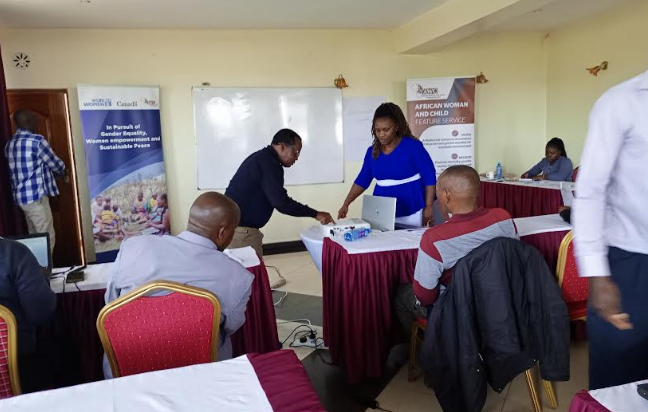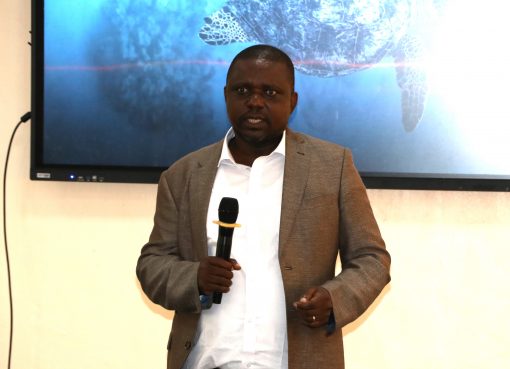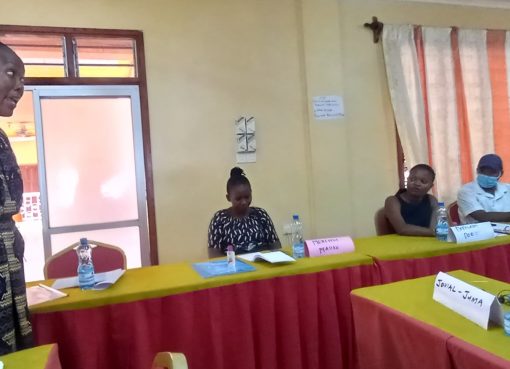Women’s participation in peacebuilding activities has not been adequately highlighted in the media; hence only a minimal part of their role in national cohesion initiatives remains reported.
It is for this reason that Journalists in Kisii County recently underwent a two-day training on conflict-sensitive reporting and the role of women in peacebuilding in a workshop organised by the African Woman and Child Features Service.
About 20 journalists from national and vernacular media organisations were trained on understanding the participation of women in peacebuilding, early warning signs of conflicts, and cohesion initiatives within the framework of the United Nations Security Council Resolution (UNSCR) 1325 and the Kenya National Action Plan II (KNAP) in the event held in a hotel in Kisii County.
Discussing the progress and challenges of the KNAP, County Assistant Director of Gender and Social Services, Vincent Okeya, underscored the importance of involving women in peace and security matters, saying it helped keep conflicts at bay; otherwise they will keep resurfacing after being quelled.
Okeya noted that the Action Plan for Counties provides the participation of women, protection of women in terms of physical abuse, mental wellness, and prevention of relapse into conflict or conflict situations.
He urged journalists to highlight the government’s activities in trying to rectify the historical injustices in women empowerment as one of the thematic areas of KNAP, whose goal is to promote gender equality in every sector.
The gender equality tenet should enable women to participate in leadership and public affairs at all levels, including appointment in the civil service as cabinet secretaries, principal secretaries, and heads of diplomatic missions, among other responsibilities.
The Gender Assistant Director urged journalists to look out for activities of women fighting gender violence (GBV), since these are advancing the requirements of the Constitution of Kenya Article 81b and 32 and the United Nations Security Council Resolution (UNSCR) 1325.
UNSCR on Women, Peace, and Security adopted unanimously Resolution (UNSCR) 1325 on October 31, 2000, after the United Nations Security Council recalled resolutions 1261, 1265, 1296, and 1314.
The resolution acknowledges the impact of armed conflicts on women and girls and stresses the need for their equal participation and full involvement in all efforts towards the maintenance and promotion of peace and security.
Okeya, however, decried the myriad challenges encountered in meeting the requirements, citing the case of Female Genital Mutilation, which still remains rampant, owing to the secrecy surrounding the practice, which makes volunteering information about it difficult.
The Assistant Director noted that the government was endeavouring to have male engagement in all thematic areas, including the fight against Gender Based Violence because without their support, there will always be a disparity in the society.
Manga Sub-county Deputy County Commissioner, Medal Maonga, said for the County government to enhance and sustain peace, particularly in localising Resolution 1325, Constitution 2010, and KNAP II, policy options should be initiated to ensure immediate and proper implementation is taken.
Maonga regretted the rise in crime incidents, including femicide, maiming, defilement, and murder, despite there being many laws.
“There are many laws, but they lack goodwill; some Bills remain on the shelves of Parliament over long durations of time because the public is not sensitised to owning and pushing for the passing and implementation of these laws,” she regretted.
She added that many laws were made hurriedly and therefore lacking workable recommendations and penalties, making it difficult to implement them.
According to a media Consultant and Trainer, Mr. Oloo Janak, voices of women in the media remained suppressed because media personnel assumed it was only the political class that needed to be heard.
Janak argued that the political class was mainly men and called on the journalists, to give women in all sectors equal coverage.
He urged them to debunk stereotypes, especially where culture diminishes others on the basis of gender, religion, disability, among others.
Janak noted that cultural issues still remained the most sensitive in conflict management and called for proper framing of information when reporting to prevent flaring up of conflicts.
He urged scribes to look out for other drivers of conflict, including land, which is an emotive issue in the Gusii region, with 80 per cent of court cases being land-related.
“Journalists must exercise their powers carefully to mitigate conflicts which are mainly unresolved grievances, discrimination, scarce resources, and erroneous beliefs,” he said.
If such conflicts are not well resolved, he said, they lead to death, xenophobia, war, mental torture, and GBV, among other things.
The National Chairperson for the Kenya Correspondents Association, Mr. Araka Matara, appealed to journalists to consider self-care when on duty to control internal and intra-conflicts, especially in the wake of job losses and lack of remuneration in many media houses.
He urged the scribes to think of alternative sources of income, to be able to put bread on the table.
The workshop was supported by UN women.
By Jane Naitore




